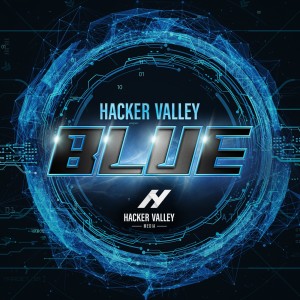
Eric Thomas, Detection & Response Engineer at HD Supply, brings his 15 years of experience in tech and cyber to the show this week to discuss collaboration— the most essential piece of the purple team formula. Eric walks us through his day-to-day routine as an engineer and provides us with his own unique insight into his current company's purple team process. Additionally, Eric teaches us about his unique approach to training future professionals with red and blue team skills and philosophies.
Timecoded Guide:
[00:00] Transitioning from a tech/IT environment into cyber engineering
[12:03] Walking through the day-to-day of a defense and response engineer
[16:48] Collaborating with the DETH purple team
[29:27] Developing security protocols for IoT and OT devices
[39:33] Going beyond the "back in my day" training stereotype
[51:22] Being the not-so-smartest person in the room
Sponsor Links:
Thank you to our friends at Axonius and PlexTrac for sponsoring this episode!
The Axonius solution correlates asset data from existing solutions to provide an always up-to-date inventory, uncover gaps, and automate action — giving IT and security teams the confidence to control complexity. Learn more at axonius.com/hackervalley
PlexTrac, the Proactive Cybersecurity Management Platform, brings red and blue teams together for better collaboration and communication. Check them out at plextrac.com/hackervalley
What is the collaboration between red and blue teams like in your current role as a detection and response engineer?
Although Eric is humble enough to admit that the purple team processes in his current work are not his singular idea, he will admit that he led the charge for a more collaborative environment. Leading this initiative started with the desire for a better SOC team. Eric's collaboration wasn't formal at all— he would simply ask other departments for help with their expertise— but this process led to a massively successful process that continues to this day.
"My idea was, if we're trying to detect adversarial behavior, we have a resource internally. Who are experts at adversarial behavior? Why try to figure this out ourselves, right? It started off as a very informal thing. It started off as [collaborative] teams."
Can you give a brief description of what IoT devices are and what type of testing you do with them?
IoT is more than another acronym in the cyber industry— it refers to the Internet of Things, or the way everyday devices connect to the internet and to each other. The concept of IoT heavily connects to OT, or operational technology. Unfortunately, because these are lesser known systems, they're less secure and less understood by security teams. Eric's team of consultants aims to fix that issue, providing security protocols where there are none.
"We have the technology and the mechanisms to protect our traditional IT. When it comes to OT and Internet of Things (IoT devices), this has been significantly overlooked. What we're seeing is a push to get security professionals more interested in protecting these devices."
How are you training future professionals and teaching them to do things differently from the problematic ways you learned back in the day?
It's almost too easy to slip into the problematic "back in my day" mindset of an experienced professional, but Eric actively combats the idea that the old ways of doing security were better when training students. Instead, Eric advocates for students to take a different, more unified approach to their learning process. Aspiring professionals shouldn't work in a silo and should instead be exposed to red and blue team processes during their learning journey.
"Don’t go into the silo, build your network, talk to people across the aisle, it's gonna make you a better pen tester. That’s what I tell [upcoming professionals], that the more blue team friends you have, it's going to make you a better pen tester.”
What advice do you have for any up-and-coming security folks who want to move into the industry?
Collaboration is the name of the game, and Eric wants up-and-coming security practitioners to approach collaboration from a place of learning. No matter how knowledgeable or skilled you are in a certain process or technology, remember that you’re not the smartest person in the room in every situation. Be curious about the work of others around you, and don’t be afraid to ask questions and learn from your peers, no matter what team they’re on.
"If you can learn anything from my story, it's that you should collaborate, network, and talk to people. Never go into a room where you know you're going to be the smartest person, and never think you're the smartest person in the room, because then you won't ask questions."
---------------
Links:
Keep up with our guest Eric Thomas on Twitter and LinkedIn
Connect with Davin Jackson on LinkedIn and Twitter
Watch the live recording of this show on our YouTube
Continue the conversation by joining our Discord
Hear more from Hacker Valley Media and Hacker Valley Blue
More Episodes
 2022-12-22
2022-12-22
 652
652
 2022-12-08
2022-12-08
 234
234
 2022-10-27
2022-10-27
 309
309
 2022-04-29
2022-04-29
 763
763
 2022-04-22
2022-04-22
 244
244
 2022-04-15
2022-04-15
 204
204
 2022-04-08
2022-04-08
 261
261
 2022-04-01
2022-04-01
 178
178
 2022-03-25
2022-03-25
 266
266
 2022-03-18
2022-03-18
 252
252
 2022-03-11
2022-03-11
 268
268
 2021-10-17
2021-10-17
 343
343
 2021-10-17
2021-10-17
 85
85
 2021-10-17
2021-10-17
 116
116
 2021-10-17
2021-10-17
 83
83
Create your
podcast in
minutes
- Full-featured podcast site
- Unlimited storage and bandwidth
- Comprehensive podcast stats
- Distribute to Apple Podcasts, Spotify, and more
- Make money with your podcast
It is Free
- Privacy Policy
- Cookie Policy
- Terms of Use
- Consent Preferences
- Copyright © 2015-2024 Podbean.com





